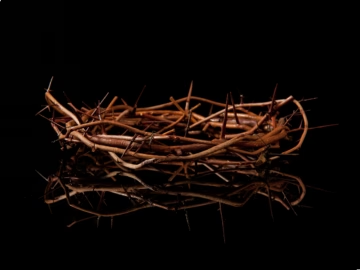
I remember a particularly disastrous piano recital from my teenage years.
Since my toddler brother was sick, my parents had sent me off to the recital early with the promise that one of them would try to attend.
I noticed with a start that my father was standing in the back doorway of the sanctuary. He had been there all along.
As I waited for the program to begin, strangers filled the church sanctuary to capacity.
My breath quickened listening to other students polish off complex sonatas and concertos. The teacher announced my name. Still no glimpse of my parents.
I perched on the grand piano bench and felt alone.
My fingers stiffened with nervous electricity.
I became hopelessly lost in the middle of one piece and had to begin again.
The keys blurred before my eyes.
Finally, I struck the last note, and the audience clapped graciously. As I trudged back to my seat, I noticed with a start that my father was standing in the back doorway of the sanctuary.
He had been there all along.
But, despite his supportive presence, I had responded to the situation as if I’d been on my own.
In a similar way, my emotions and perceptions often shape the way I experience God’s presence: Sometimes God feels as close as my next inhalation. At other times, God appears to be absent from my life.
In college, a Good Friday Tenebrae service began to transform the way I view God’s seeming absences. Not knowing what to expect, I walked into a sanctuary lit only by low lamps and a candelabra.
As the worship leader read each passage of Christ’s Passion followed by a somber hymn, acolytes extinguished each candle, until only one remained. After a period of silence, the leader proclaimed Christ’s death, speaking his last words, “My God, my God, why have you forsaken me?” and extinguishing the final candle. Darkness immersed us.
Yet they had left Calvary alone in their disappointment and grief.
I waited for some benediction, some mention of the Easter comfort to come. But only silence and darkness remained.
I began to consider the disciples, who had seen miracles and wonders, had believed Christ to be the Messiah, a conquering King and an avenger of injustice.
Yet they had left Calvary alone in their disappointment and grief.
I lingered and prayed, and then I, like the disciples, like everyone else in the sanctuary, eventually just got up and walked away.
This might sound like a disappointing conclusion to a service.
But the experience has become a touchstone in my spiritual life.
It led me into the disappointment of Christ in Gethsemane when he asks for the cup to be taken away. Yet it remains. I felt the despair of the disciples when their Messiah dies on a cross instead of calling down legions of angels to save himself. I entered into the communion of saints facing the vexation of prayers that seem unanswered, miracles left unsprung.
The death I honored that Good Friday wasn’t just Christ’s death.
It was also the death of my image of an Easter-only God. The death of my belief that the full outpouring of human experiences can be channeled into a predictable stream of understanding.
In the years following the Tenebrae service, I haven’t found answers to every question, silenced all fears, dislodged clamoring doubts.
I have, however, tried to enlarge my faith to encompass the brutal reality and scandal of the crucified Christ as well as the hope of Christ resurrected. I have come closer to recognizing that just because I don’t always sense God’s presence in my life doesn’t necessarily mean that God is not there. I’m less concerned with protecting God from unanswered questions and more interested in connecting with God’s complexity, in sustaining our relationship no matter what I’m feeling or thinking at the time.
When it comes to trust, I look to my 20-month-old daughter, Clara, as an expert. She lives fully in the present moment. If she’s hungry, she complains and trusts that we will feed her. If she falls, she runs to us, arms thrust upward, confident we’ll comfort her.
Whatever happens, she has placed her simple trust in her parents.
As adults, however, we know both too much and too little to make this type of trust easy. We know the world holds love, malice, and uncertainty. We have learned to anticipate the future, to worry. We have traced the shape of God’s seeming absence.
And yet, God’s relationship to mysteries of suffering and evil remain complex beyond our grasp.
In the face of our limited understanding, I resonate with Hebrews 6, which describes a hope that is rooted in the character of God. I still remember reading the following passage and beginning to understand hope, not as an ephemeral concept, but as the foundation of our lives: “We have this hope, a sure and steadfast anchor of the soul, a hope that enters the inner shrine behind the curtain, where Jesus, a forerunner on our behalf, has entered, having become a high priest forever according to the order of Melchizedek.”
This promise is not a quaint optimism, but an active decision to “seize the hope set before us.”
Despite circumstances and mysteries beyond our comprehension, it is this hope that provides sanctuary, that remains sturdy, present, as an anchor of the soul.
Originally published as “A Good Friday journey into shadows: In search of a hope that passes understanding” for the spring 2010 issue of BIC U.S.’ In Part magazine.



